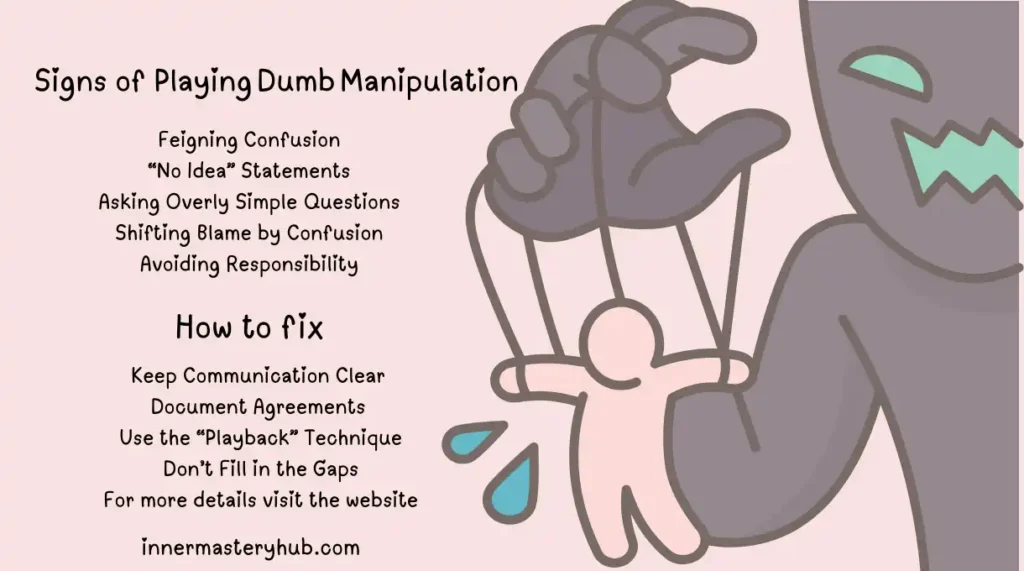50+ Positive Affirmations for Anxiety and Depression

One of the most common symptoms is anxiousness. Most people suggest thinking about good ideas and avoiding negative ones. But that’s not how it operates. Regularly repeating positive affirmations until you stop feeling anxious is the way to prevent anxiety.
You can recite affirmations to yourself every day in the morning or before bed. By focusing on your subconscious thought patterns, you can alter them.
You may be able to overcome anxiety thoughts by repeating these anxiety-relieving positive affirmations.
Recite affirmations such as “I am in complete control of my tranquility” while you are feeling powerless, for example, to counteract anxious thoughts. Let’s study more positive affirmations for anxiety to help control depression, anxiety conditions, and negative thinking.
Anxiety Symptoms
- Feeling worried or scared
- Fast heartbeat
- Sweaty hands
- Trouble sleeping
- Feeling tired all the time
50 Best Positive Affirmations for Anxiety Relief
Throughout the years, I have found that the following carefully chosen affirmations for depression and anxiety relief have been effective: recite your affirmations to achieve a positive state.
Affirmations for Long-Term Anxiety
A prolonged period of worry or fear is referred to as long-term anxiety, like a shadow that never goes away. It may make daily tasks and happiness difficult.
Long-term anxiety can be managed using the following optimistic affirmations:
- I am strong and capable of handling challenges.
- I let go of worry and chose peace.
- Each day is a new chance to feel calm and centered.
- I am safe and protected in this moment.
- My body is relaxed, and my mind is at ease.
- I believe in myself and my ability to cope.
- I am grateful for the good things in my life.
- I am learning to manage my anxiety one day at a time.
- I deserve happiness and well-being.
- I am letting go of what I cannot control.
Remember, it’s okay to feel anxious sometimes. These positive thoughts and positive affirmations help you manage it better.
Affirmations for Work Anxiety
Work anxiety means feeling stress and anxiety about your job. It can make you feel scared, tired, or unhappy.
- I can handle whatever comes my way.
- I am capable in my role.
- I take breaks to rest and recharge.
- I focus on one task at a time.
- I am proud of my work.
- I deserve to feel calm and relaxed.
- I am learning and growing in my job.
- I let go of perfectionism.
- I trust my abilities.
- I balance work and rest.
Affirmations for Health Anxiety
Health anxiety means feeling worried about getting sick all the time, even when there’s no real reason to be scared. It can make you feel stressed and tired.
- My body is strong and healthy.
- I trust my body to heal itself.
- I am safe and well in this moment.
- I let go of worry about my health.
- I focus on taking care of my body with healthy choices.
- I believe in my doctor’s expertise.
- I am grateful for my good health.
- I choose to focus on positive thoughts.
- I am calm and relaxed.
- I deserve to feel healthy and happy.
Positive Affirmations for Intense Fear
- I am safe right now.
- This feeling will pass.
- I can handle this.
- I am strong and brave.
- I am breathing slowly and deeply.
- I am letting go of worry.
- I trust my body.
Affirmations for Relationship Anxiety
Relationship anxiety means feeling worried or scared about your relationship. It can make you feel unsure or unhappy.
- I trust my partner and our relationship.
- I am worthy of love and respect.
- I communicate openly and honestly with my partner.
- Our relationship is a safe and supportive space.
- I let go of fear and embrace trust.
- We are growing and learning together.
- I appreciate my partner and express my gratitude.
- I choose to focus on the positive aspects of our relationship.
- Our love is solid and enduring.
- I am confident in our ability to overcome challenges.
Affirmations for Social Anxiety
Feeling timid or afraid in social situations is known as social anxiety. It can make attending gatherings and interacting with new people difficult.
Repeat affirmations for anxiety:
- I am comfortable being myself.
- I deserve to be around people.
- I can handle social situations with ease.
- I am worthy of connection.
- My opinion matters.
- I am relaxed and confident in social settings.
- I enjoy meeting new people.
- I am learning to overcome my shyness.
- I am capable of making friends.
- I choose to focus on the positive aspects of social interactions.
Generalized Anxiety Affirmations
Generalized anxiety is the state of being afraid or anxious about a wide range of things, even when there isn’t a valid reason to be. Your mind always seems to be on high alert.
- I am safe and secure.
- I let go of worry and embrace peace.
- I can handle whatever comes my way.
- One step at a time is okay.
- I trust myself to cope.
- I am calm and relaxed.
- My body is safe and healthy.
- I deserve peace of mind.
- I am strong and resilient.
- Each day is a new beginning.
Other Ways To Manage Anxiety
Besides affirmations and meditation, there are many other things you can do to help manage your anxiety.
Journaling
Journaling reduces anxiety. Writing down your concerns helps you to release them from your mind. When they are written down, they may appear less serious. Writing about how and why you feel that way is another option. You can better understand your anxiety by doing this.
It’s like conversing with a friend who never fails to listen. By putting positive thoughts and feelings on paper, you can improve your mood, gain a better understanding of yourself, and develop a more optimistic outlook.
Meditation or Mindfulness
Meditation is like taking a break from your occupied thoughts by reducing anxiety. It can help you manage complex emotions positively and build resilience. You sit quietly and focus on your breath or a calm thought, which helps your mind slow down.
When you’re anxious, your mind races. Meditation helps it stop racing. It’s like pressing a pause button. You learn to notice your thoughts without getting caught up, making you feel calmer and more in control.
Deep breathing
It’s like hugging your body when you breathe deeply. You may have shallow, rapid breathing when you’re nervous. Breathing deeply facilitates breathing more slowly. Slowly, you inhale through your nose and exhale through your mouth. This lets your body know that it’s acceptable to unwind. It serves as a calming cue to think positively.
cognitive behavioral therapy
Cognitive behavioral therapy helps you change your perspective. Seeing how your ideas might cause anxiety is made possible by it. You get better at altering those ideas to feel more at ease. You might think of it as a kind of brain training. Additionally, you learn techniques like deep breathing to help your body relax. This aids in breaking the pattern of anxiety and promoting optimism.
How to use positive Affirmations for Anxiety
- Pick ones that feel right for you.
- Repeat affirmations out loud often. Say them to yourself in the morning, at bedtime, or whenever you feel anxious.
- Try to believe what you’re saying.
- Write them down. Seeing them written can help you remember them.
- It takes time to see a difference. Keep trying!
- Combine with other methods. Use affirmations with deep breathing or meditation for a more considerable effect.
Write Your Affirmations for Anxiety.

Here’s A List Of The Key Points For Writing Effective Positive Affirmations For Anxiety:
– Keep It Positive. Focus On What You Want To Achieve, Using Uplifting Language.
– Present Tense. Phrase Your Affirmations As If They Are Already Happening.
– Be Specific. Clearly Define What Success Or Achievement Looks Like For You.
– Make It Personal. Tailor Your Affirmations To Your Values And Goals.
– Keep It Short And Memorable. Make Them Easy To Remember And Repeat.
-Include Emotional Words. Use Words That Evoke Strong, Positive Feelings.
– Repeat Regularly. Consistency Is Crucial For Affirmations To Reshape Your Thinking And Overall Well-Being.
How Positive Affirmations Help You Manage Anxiety
Affirmations can help you reframe your thinking and foster mental clarity and well-being.
In times of anxiety, positive affirmations can help you relax. According to research, positive self-talk might fool your brain into thinking you’re happier and less anxious. These positive thoughts give you the strength and courage to combat negative mind patterns. Try telling yourself something kind the next time you’re feeling nervous. It may even alter your thought process.
FAQs About Affirmations for Anxiety
What are affirmations for anxiety?
Affirmations for anxiety are positive sentences you repeat to calm your mind and replace negative thoughts. They help you focus on peace, confidence, and control. By saying them daily, you train your brain to think more positively and reduce anxious feelings over time.
How do affirmations for anxiety work?
Affirmations for anxiety work by changing your mindset. When you repeat positive statements, your brain slowly replaces fearful thoughts with calmer ones. This builds confidence, reduces stress, and helps you stay present rather than worry about the future.
Can affirmations for anxiety really help?
Yes, affirmations for anxiety can help when used regularly. They don’t remove anxiety instantly, but support emotional balance. Saying positive words daily helps your mind focus on peace and strength, reducing stress and improving how you handle anxious moments.
How to use affirmations for anxiety daily?
Use affirmations for anxiety by saying them aloud each morning, writing them down, or repeating them during stressful times. Stay consistent, believe your words, and breathe deeply as you tell them. This helps your mind relax and gradually reduces anxious thoughts.
What are the best affirmations for anxiety?
Some of the best affirmations for anxiety are:
“I am safe and calm.”
“I control my thoughts and emotions.”
“This feeling will pass.”
“I trust myself to handle challenges.”
Use the ones that feel most true and comforting to you.
How long do affirmations for anxiety take to work?
Affirmations for anxiety take time and practice. You may feel calmer in a few days, but fundamental changes usually take weeks of daily use. The key is consistency and belief. The more often you repeat them, the stronger their positive effect becomes.
Can affirmations for anxiety replace therapy or medicine?
No, affirmations for anxiety cannot replace therapy or medicine. They are a helpful self-care tool, not a complete treatment. Use them along with therapy, mindfulness, or medical help for the best results. Always talk to a doctor about severe anxiety symptoms.
When should I say affirmations for anxiety?
Say affirmations for anxiety in the morning, before bed, or anytime you feel stressed. You can also repeat them during deep breathing or meditation. The goal is to calm your mind and remind yourself of your strength when anxiety starts rising.
Do affirmations for anxiety work while sleeping?
Yes, affirmations for anxiety can work while sleeping if you play recordings or repeat them before bed. They help your mind relax and create a positive mindset. Listening to gentle affirmation audios can reduce nighttime stress and improve sleep quality.
Can affirmations for anxiety help with panic attacks?
Affirmations for anxiety can help ease panic attacks when used early. Saying calming phrases like “I am safe” or “This will pass” enables you to regain control and slow your breathing. They support your calm response, but should be used with other coping methods.






